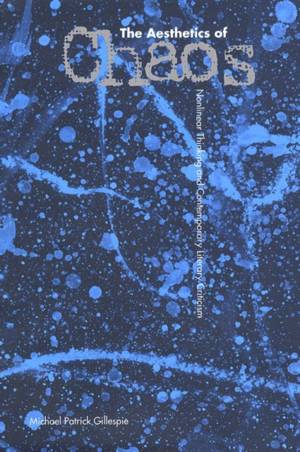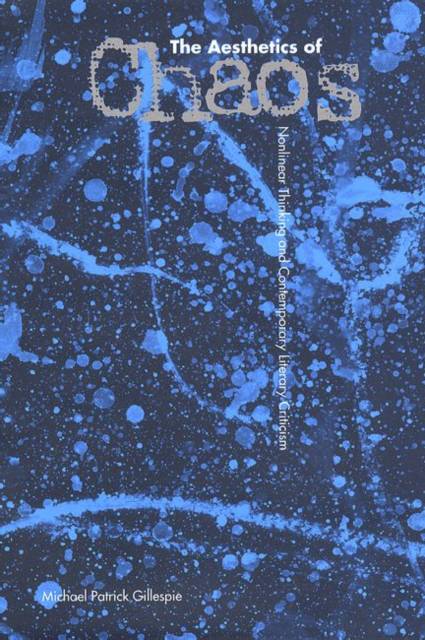
- Retrait gratuit dans votre magasin Club
- 7.000.000 titres dans notre catalogue
- Payer en toute sécurité
- Toujours un magasin près de chez vous
- Retrait gratuit dans votre magasin Club
- 7.000.0000 titres dans notre catalogue
- Payer en toute sécurité
- Toujours un magasin près de chez vous
The Aesthetics of Chaos
Nonlinear Thinking and Contemporary Literary Criticism
Michael Patrick Gillespie
Livre broché | Anglais
24,45 €
+ 48 points
Description
"An invigorating (and convincing) challenge to the cornerstone assumptions of virtually all contemporary literary criticism . . . this study lays the groundwork for a dynamic new approach to reading literature. Sure to be controversial, its fundamental right-headedness should help to open debate on the nature of literary criticism across numerous disciplines."--William W. Demastes, Louisiana State University Michael Patrick Gillespie employs concepts of post-Einsteinian physics as the metaphoric and dialectic foundation for an alternative method of interpreting literature. His central argument revolves around the notion that the most useful literary criticism is that which comes closest to the process of reading. He argues that since our reading is not circumscribed by Cartesian cause-and-effect principles, our literary criticism should not be bound by linear thinking. Using examples that range from the Book of Job to Harry Potter and the Sorcerer's Stone, Gillespie demonstrates how nonlinear perception vastly enhances one's ability to understand diverse forms of literature. Invoking theories from Einstein's views on relativity, quantum mechanics, and chaos theories, Gillespie applies his approach to different types of literary works, including a children's fantasy: the Bible, The Importance of Being Earnest, and Finnegans Wake. In each case, he compares a nonlinear model of criticism with the interpretation of established critical schools, focusing especially on elucidating both the weaknesses in those schools and the multiple legitimate textual meanings in these works. Providing clear, useful theoretical grounding in the basics of the new sciences, Gillespie draws from the fundamental thinking behind these new conceptions of material existence to articulate a paradigm of literary criticism that should be of value to all literary scholars. ?Michael Patrick Gillespie is Louise Edna Goeden Professor of English at Marquette University and author of several works, including Oscar Wilde and the Poetics of Ambiguity (UPF, 1996) and Joyce through the Ages (UPF, 1999).
Spécifications
Parties prenantes
- Auteur(s) :
- Editeur:
Contenu
- Nombre de pages :
- 160
- Langue:
- Anglais
Caractéristiques
- EAN:
- 9780813033464
- Date de parution :
- 15-11-08
- Format:
- Livre broché
- Format numérique:
- Trade paperback (VS)
- Dimensions :
- 152 mm x 229 mm
- Poids :
- 231 g

Les avis
Nous publions uniquement les avis qui respectent les conditions requises. Consultez nos conditions pour les avis.






